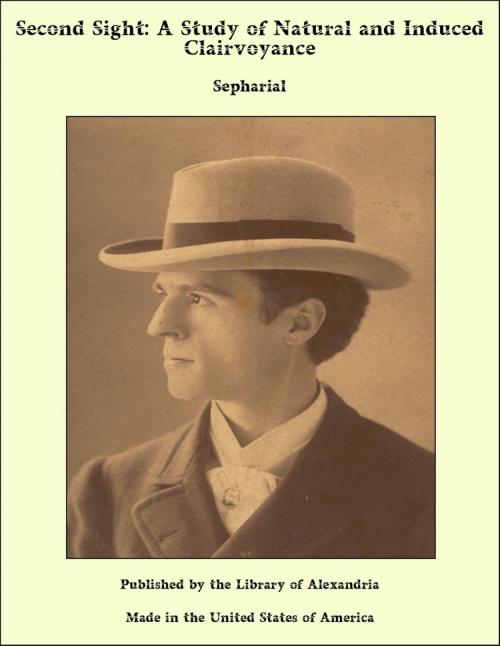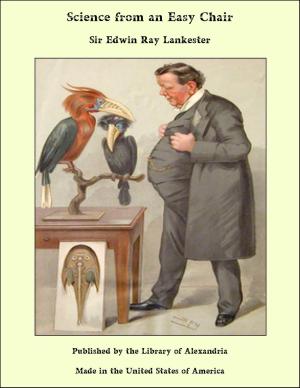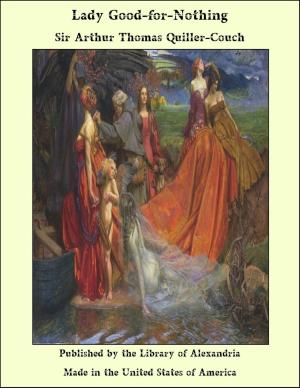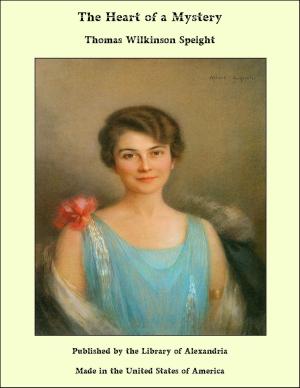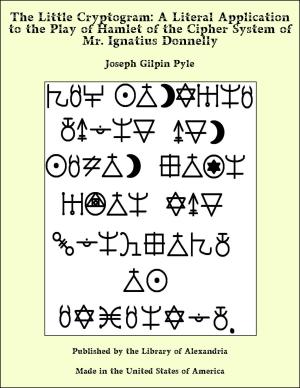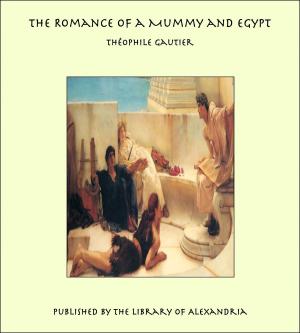Second Sight: A Study of Natural and Induced Clairvoyance
Nonfiction, Religion & Spirituality, New Age, History, Fiction & Literature| Author: | Sepharial | ISBN: | 9781465599506 |
| Publisher: | Library of Alexandria | Publication: | March 8, 2015 |
| Imprint: | Language: | English |
| Author: | Sepharial |
| ISBN: | 9781465599506 |
| Publisher: | Library of Alexandria |
| Publication: | March 8, 2015 |
| Imprint: | |
| Language: | English |
It would perhaps be premature to make any definite pronouncement as to the scientific position in regard to the psychic phenomenon known as "scrying," and certainly presumptuous on my part to cite an authority from among the many who have examined this subject, since all are not agreed upon the nature and source of the observed phenomena. Their names are, moreover, already identified with modern scientific research and theory, so that to associate them with experimental psychology would be to lend colour to the idea that modern science has recognized this branch of knowledge. Nothing, perhaps, is further from the fact, and while it cannot in any way be regarded as derogatory to the highest scientist to be associated with others, of less scientific attainment but of equal integrity, in this comparatively new field of enquiry, it may lead to popular error to institute a connection. It is still fresh in the mind how the Darwinian hypothesis was utterly misconceived by the popular mind, the suggestion that man was descended from the apes being generally quoted as a correct expression of Darwin's theory, whereas he never suggested any such thing, but that man and the apes had a common ancestor, which makes of the ape rather a degenerate lemur than a human ancestor. Other and more prevalent errors will occur to the reader, these being due to the use of what is called "the evidence of the senses"; and of all criteria the evidence of sensation is perhaps the most faulty. Logical inference from deductive or inductive reasoning has often enough been a good monitor to sense-perception, and has, moreover, pioneered the man of science to correct knowledge on more than one occasion. But as far as we know or can learn from the history of human knowledge, our senses have been the chiefest source of error. It is with considerable caution that the scientist employs the evidence from sense alone, and in the study of experimental psychology it is the sense which has first to be corrected, and which, in fact, forms the great factor in the equation. A person informs me that he can see a vision in the crystal ball before him, and although I am in the same relation with the "field" as he, I cannot see anything except accountable reflections. This fact does not give any room for contradicting him or any right to infer that it is all imagination. It is futile to say the vision does not exist. If he sees it, it does exist so far as he is concerned. There is no more a universal community of sensation than of thought. When I am at work my own thought is more real than any impression received through the sense organs. It is louder than the babel of voices or the strains of instrumental music, and more conspicuous than any object upon which the eye may fall. These external impressions are admitted or shut out at will. I then know that my thought is as real as my senses, that the images of thought are as perceptible as those exterior to it and in every way as objective and real. The thought-form has this advantage, however, that it can be given a durable or a temporary existence, and can be taken about with me without being liable to impost as "excess luggage." In the matter of evidence in psychological questions, therefore, sense perceptions are only second-rate criteria and ought to be received with caution.
It would perhaps be premature to make any definite pronouncement as to the scientific position in regard to the psychic phenomenon known as "scrying," and certainly presumptuous on my part to cite an authority from among the many who have examined this subject, since all are not agreed upon the nature and source of the observed phenomena. Their names are, moreover, already identified with modern scientific research and theory, so that to associate them with experimental psychology would be to lend colour to the idea that modern science has recognized this branch of knowledge. Nothing, perhaps, is further from the fact, and while it cannot in any way be regarded as derogatory to the highest scientist to be associated with others, of less scientific attainment but of equal integrity, in this comparatively new field of enquiry, it may lead to popular error to institute a connection. It is still fresh in the mind how the Darwinian hypothesis was utterly misconceived by the popular mind, the suggestion that man was descended from the apes being generally quoted as a correct expression of Darwin's theory, whereas he never suggested any such thing, but that man and the apes had a common ancestor, which makes of the ape rather a degenerate lemur than a human ancestor. Other and more prevalent errors will occur to the reader, these being due to the use of what is called "the evidence of the senses"; and of all criteria the evidence of sensation is perhaps the most faulty. Logical inference from deductive or inductive reasoning has often enough been a good monitor to sense-perception, and has, moreover, pioneered the man of science to correct knowledge on more than one occasion. But as far as we know or can learn from the history of human knowledge, our senses have been the chiefest source of error. It is with considerable caution that the scientist employs the evidence from sense alone, and in the study of experimental psychology it is the sense which has first to be corrected, and which, in fact, forms the great factor in the equation. A person informs me that he can see a vision in the crystal ball before him, and although I am in the same relation with the "field" as he, I cannot see anything except accountable reflections. This fact does not give any room for contradicting him or any right to infer that it is all imagination. It is futile to say the vision does not exist. If he sees it, it does exist so far as he is concerned. There is no more a universal community of sensation than of thought. When I am at work my own thought is more real than any impression received through the sense organs. It is louder than the babel of voices or the strains of instrumental music, and more conspicuous than any object upon which the eye may fall. These external impressions are admitted or shut out at will. I then know that my thought is as real as my senses, that the images of thought are as perceptible as those exterior to it and in every way as objective and real. The thought-form has this advantage, however, that it can be given a durable or a temporary existence, and can be taken about with me without being liable to impost as "excess luggage." In the matter of evidence in psychological questions, therefore, sense perceptions are only second-rate criteria and ought to be received with caution.
